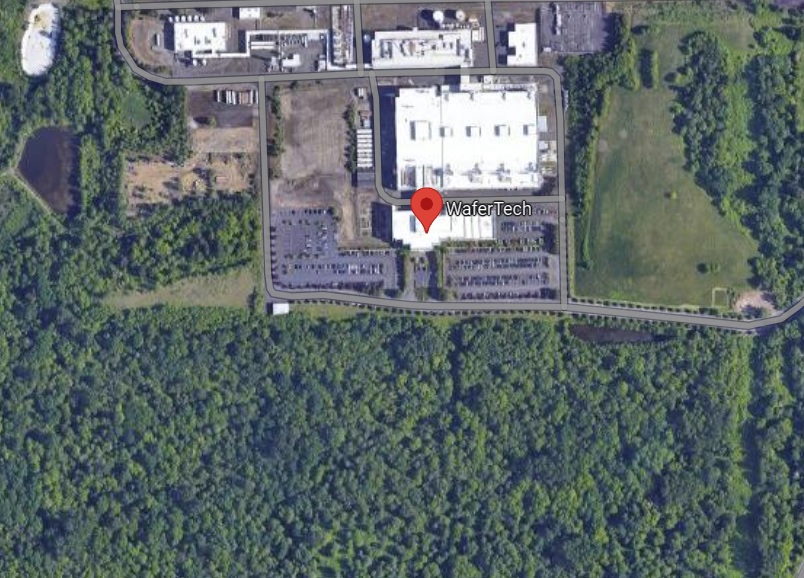Taiwan Semiconductor Manufacturing Co. enjoyed a remarkable year in 2024, with sales up by more than a third and profits climbing even faster.
The world’s largest chipmaker is capitalizing on the rise of artificial intelligence, which is fueling enormous demand for semiconductors using TSMC’s advanced manufacturing technology — the most sophisticated in the world.
Thousands of miles from Taiwan, though, TSMC operates a relatively small factory near Portland that relies on technology that hasn’t been cutting edge in a quarter century. TSMC Washington, formerly known as WaferTech, posted its worst results in at least a dozen years.
Sales at the factory in Camas fell by more than 30% in 2024. TSMC Washington slipped into the red for the first time in many years, reporting a $32 million loss.
TSMC Washington is suffering from a cyclical downturn in demand for chips made with older technology, the same issue that has undermined aging factories Microchip Technology and Onsemi operate in nearby Gresham.
But TSMC Washington is also coping with trade headwinds and baggage associated with its isolation, far from its corporate parent or sibling factories.
TSMC declined to comment on the financial results of its Camas factory, known in the industry as a fab, or the facility’s long-term future. But the company said it’s still investing in the site, which employs about 1,000.
“TSMC Washington is hiring engineers in Camas and upgrading some of its fab systems,” the company said in a written statement.
TSMC is a contract manufacturer, or foundry in the semiconductor industry’s parlance. It doesn’t design chips. Instead, TSMC offers leading-edge production technology to clients including Nvidia, Apple and even Intel — which began outsourcing some of its most advanced chips after because of mounting production troubles in Intel’s own fabs.
The Camas fab was TSMC’s first in the U.S. when it opened as WaferTech in 1998. Washington economic development officials hoped it would be the first of several fabs on the site east of Vancouver.
WaferTech ran into immediate problems, though, as TSMC struggled to adapt to U.S. regulations and labor practices.
“Initially it was chaos. It was just a series of ugly surprises because, when we first went in, we really expected the costs to be comparable to Taiwan. And that was extremely naive,” said Morris Chang, TSMC’s legendary founder, in 2022. He said the 1,000 workers in Camas cost 50% more than they would in Taiwan.
WaferTech was among the last generation of fabs to use 200-millimeter silicon wafers. The industry was on the cusp of moving to the larger, more efficient 300-millimeter standard. It’s very expensive to upgrade an older fab to larger wafers, and TSMC never did so in Camas.
“At one point that fab was doing reasonably well but you know, Morris Chang never liked it. He always felt like the world was twisting his arm to put a fab there,” said Dan Hutcheson, vice chair of the semiconductor industry research firm TechInsights.
Disheartened by its early setbacks, TSMC didn’t build any more fabs in Camas and hasn’t significantly upgraded the original one. That left it a single, secluded factory operating on its own with antiquated technology. TSMC dropped the WaferTech name in 2023, rebranding the site as TSMC Washington.
The Camas fab can manufacture chips with features between 0.35 microns to 0.16 microns, according to TSMC. That’s technology from around the turn of the century, the time the fab opened.
Such trailing-edge technology still has many uses, in industrial equipment, autos, appliances and the defense industry. A shortage of such chips during the pandemic pushed TSMC Washington’s sales to record highs in 2022, but now there’s a glut and the whole industry is struggling.
TSMC Washington faces other hurdles, according to Hutcheson. He said protectionist policies in China that predate the Trump administration’s trade war have made it more difficult for low-end chips made in the U.S. to find customers in Asia.
Perhaps most seriously, TSMC Washington is a small factory far removed from its parent company’s other sites. That’s a long-term problem because TSMC has long emphasized the value of operating large clusters of factories. The Camas site has only 260 acres total – a quarter of the space that advanced fabs now seek.
Over the past several years, TSMC has built a leading-edge factory on 1,000-acres in Arizona and plans at least two more there. It has left Camas alone.
Despite last year’s sharp downturn, TSMC Washington doesn’t appear to have endured the mass layoffs that Microchip Technology and Onsemi have undertaken this year as demand for older-generation chips fell and their sales waned. Microchip has been furloughing its Gresham workers intermittently for well over a year.
TSMC Washington’s struggles run deeper than the current industry downturn, according to Hutchison, because it’s an outlier in its parent company’s global factory network. In the long run, he said TSMC might shift more production to other sites.
But pandemic-era chip shortages and the current trade war underscore the value of having fabs distributed around the world, Hutchison said. That could work in favor of the Camas’ fab.
And while TSMC Washington uses older technology, he said those chips are far from obsolete.
“Some people call it essential technologies,” Hutchison said, because these chips play a vital role managing basic functions in cars, telecommunications equipment and industrial tools.
“The technology’s still good,” he said.

Chipmaker TSMC is booming, but its factory near Portland is at a low point
The Camas site was its parent company’s first factory in the United States. Now it’s a big outlier.

